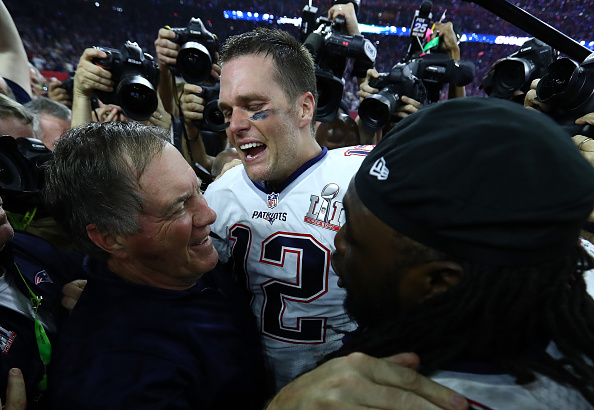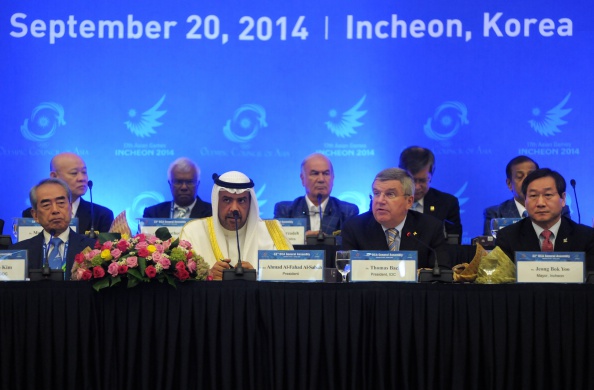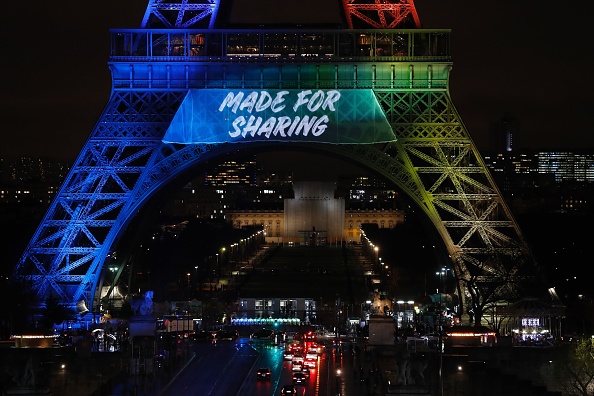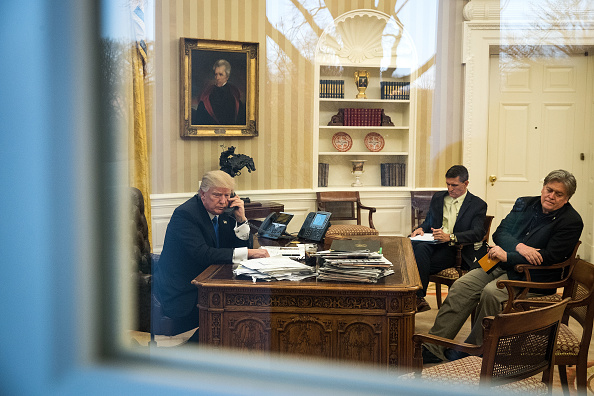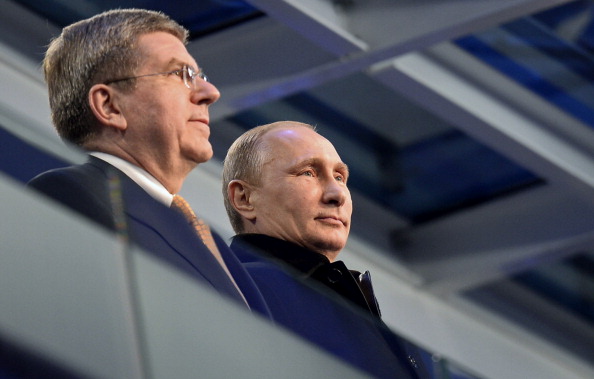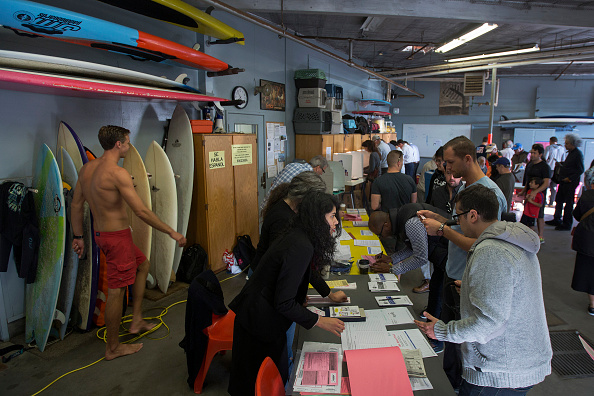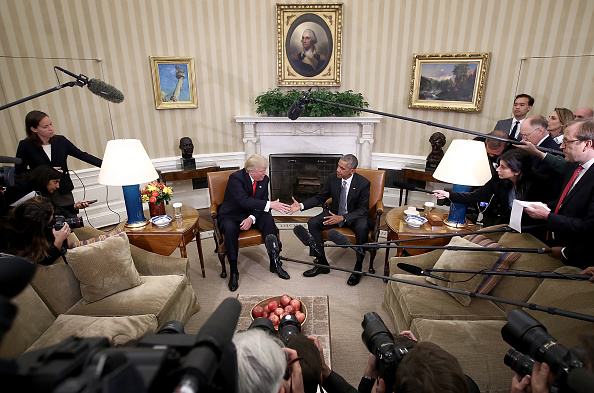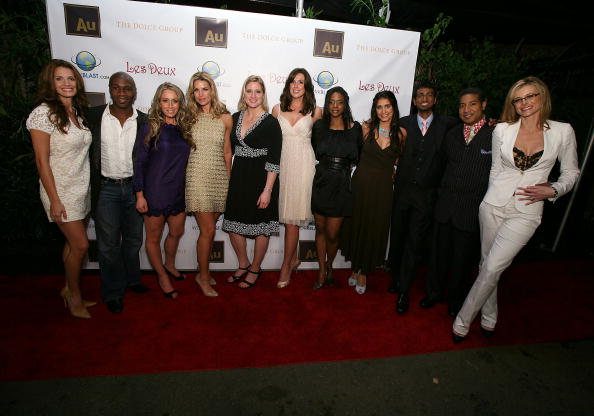The hits keep coming for the International Olympic Committee, and we are not talking Top-40 radio.
On Sunday, voters in the Swiss Alps — for the second time — said no thanks to an Olympic bid that would have been staged in the posh mountain resorts of St. Moritz and Davos. A state in Switzerland is called a canton. That canton is called Graubuenden. Asked about financing a candidacy for the 2026 Games, 60.1 of voters there said, nope.
Four years ago, the vote against a 2022 bid was 53 percent.
Trend line: not positive. The Swiss say they'll keep exploring 2026 options in another mountain town, Sion, but whatever. In 1999, Sion was the 2006 IOC loser, to Turin, Italy.
Making Sunday’s balloting all the more a disconnect: voting was held amid the two weeks of the 2017 world alpine ski championships in St. Moritz. If ever conditions were ripe to highlight the cool stuff of a high-profile event in a ski resort that twice before had staged the Winter Games, in 1928 and 1948, it was all there.
Instead, disaster. Sixty-forty is a blowout, people.
Actually, Sunday’s balloting makes for the latest in a string of lectures — sorry to use that word, IOC friends, because the good lord knows you don’t like to be told much, if anything — that taxpayers all over Europe have been screaming now for years from the rooftops.
Here is the question:
Are you listening?
Better:
What, finally, will make you hear?
What, ultimately, will make you realize what is what?
The Olympic movement is at — pick your phrase — an inflection point, a turning point, a tipping point.
Voters are not just rejecting the costs of the Games, though that is the biggest factor.
This is also an uncomfortable let’s look-in-the-mirror moment for the members of the IOC.
Voters — see Brexit, Trump, Olympic-related balloting, maybe next the upcoming elections this spring in France — are rejecting everything that goes with what they perceive to be the “elite.”
There could be no more glaring example of the “elite,” right or wrong, fair or not, than the IOC, particularly the IOC going to Davos for a three-week party at what taxpayers perceive to be their expense.
Davos! It was at the super-glitzy Davos get-together just a few weeks ago that the Chinese e-commerce giant Alibaba announced a long-term sponsorship of the IOC. To be both clear and fair, from the perspective of the IOC and Alibaba the deal is a coup. Terms were not announced but it reportedly is worth a reported $800 million to an entity, the IOC, that over the four-year cycle 2013-16 announced it intends to take in revenue worth $5.6 billion.
And you wonder why taxpayers are revolting against the Games?
Once more, it is worth heeding the words of Marius Vizer, the president of the International Judo Federation, who said in a speech in Sochi in April 2015:
“History demonstrated that all the empires who reached the highest peaks of development never reformed on time and they are all headed for destruction. The IOC system today is expired, outdated, wrong, unfair and not at all transparent.”
For these remarks, the IOC and president Thomas Bach tried (unsuccessfully) to all but excommunicate Vizer from the Olympic movement.
Time keeps proving Vizer all the more prescient.
In December 2014, the IOC, at Bach’s urging, passed a purported 40-point reform plan dubbed Agenda 2020. To date, as Sunday’s balloting in Switzerland made plain yet once more, Agenda 2020 has proven thoroughly unconvincing to taxpayers anywhere. The reason is clear: there is no fact-based evidence proving that Agenda 2020 amounts to anything but lip service.
Bottom line: the IOC simply cannot carry on the way it has been doing business since the 1992 Barcelona Games ushered in the notion of Games as catalyst for wide-ranging urban transformation project.
That era has come to a crashing, sudden end.
That is what voters in western democracies are saying, and emphatically.
And it’s easy to understand why:
Games-associated costs have become obscene.
$12 to $15 billion in Athens in 2004, $15 billion in London in 2012, a presumed $20 billion in Rio in 2016 (bid documents said $14.4 billion, and that was before a series of delay-related cost overruns), $40 billion in Beijing in 2008 and the killer, a reputed $51 billion in Sochi in 2014.
The Associated Press reports out of Rio recently have just been -- in a word -- grim:
https://twitter.com/StephenWadeAP/status/830584108350849024
https://twitter.com/StephenWadeAP/status/830411202488582146
For 2022, six cities in Europe dropped out, five put off to varying degrees by the $51 billion 2014 figure: Oslo, Munich, Stockholm, Davos/St. Moritz and Krakow, Poland. A sixth, Lviv, Ukraine, fell out because of war.
In Oslo, they didn't just complain about the money -- they complained about stuff like IOC protocol and how many cocktails, fruits and cakes were supposed to be on hand for visits. When Oslo dropped out, the IOC issued a statement that called it a "missed opportunity" and chastised the Norwegians for taking "their decisions on the basis of half-truths and factual inaccuracies."
You wonder why the perception persists -- despite the considerable on-the-ground good work the IOC does around the world each and every day -- that the IOC is elitist?
That 2022 race left the IOC to choose between Beijing, with no snow in the mountains, and Almaty, Kazakhstan. It chose Beijing.
The 2024 race in 2015 started with five cities. It is now down to three.
Hamburg, Germany dropped out after voters said no in a referendum.
Rome dropped out when the mayor said the Games were too expensive amid other priorities. Rome similarly dropped out of the 2020 picture.
Los Angeles, Paris and Budapest are still in.
The IOC will pick the 2024 winner on September 13 by secret ballot at an assembly in Lima, Peru.
September is a long way from February. A lot can, and doubtlessly will, happen.
Even so, the conversations that typically don’t happen in IOC bid campaigns need to happen. Because this campaign can’t be like the others. The Olympic movement literally cannot afford it.
The government-backed Paris 2024 bid, for instance, says its infrastructure costs would total $3.2 billion.
This total ought to be viewed with extreme suspicion. It is the nature of government-backed winning bids in the past 20 years to have made similar we’ll-keep-costs-down promises: Athens, Beijing, London, Sochi, Rio …
Take another look at that Rio athletes' village. Paris needs to build one, too.
Our Paris 2024 friends recently, so everyone should know, have been trying another tack. The Games have never been away from Europe for more than 12 years; the last Games in Europe were in London in 2012; 2024 would obviously be 12 years. Our French friends say, it’s precisely because the crisis is in Europe that the IOC ought to come to Europe for 2024. If the IOC doesn’t come to Europe for 2024, they ask, when will it ever come to Europe again?
Easy: 2028.
When these cities will be lining up because they already have expressed interest: Madrid, Budapest, Milan, St. Petersburg and Paris.
Also, probably some city in Germany.
In case this is not clear: Budapest wants to be the first city in Europe to stage the Games after London. And they have a good story to tell.
In any case, in virtually every country but the United States, sport is an arm of the federal government. Thus bids and Olympic Games tend to be the purview of governments. The logic tree goes like this:
It’s one thing for a federal government somewhere to put up, say, $50 or $80 million to organize and run an Olympic campaign. It’s quite another, as is the case in the United States, to have to raise that money from private donors.
When I wrote a few columns ago that Casey Wasserman, the LA24 bid chair, had gone about raising $35 million, I was wrong.
It was more like $50 million, maybe even a little more.
If Los Angeles does not win for 2024, Wasserman just cannot go back to all those people and say, looking at 2028, “OK, let’s do it all over again because now I think we really might win.”
Not going to happen.
Indeed, we all need to be as crystal clear about these things as possible:
To make Agenda 2020 anything more than just so much talk, the IOC needs for 2024 to grab onto the very thing that for years it has found so sour about the American bid: the fact that it is privately funded instead of government-backed.
A privately funded bid has no wiggle room. When the LA24 people say the bid will be $5.3 billion, it will — just like Peter Ueberroth proved in 1984, when there was no room for error — be $5.3 billion, if not less.
Moreover, this needs to be explicitly understood as well. Plain, forthright talk serves everyone’s interests:
If Los Angeles does not win for 2024, there will be significant resistance where it counts to the notion of there being an American bid for an extremely long time.
By significant, I am being gentle.
By where it counts, I mean U.S. Olympic Committee leadership, the USOC board of directors and at the highest levels of politics and government in the United States as well.
Even the winter sports people get it. They’re in for 2024. They’re not yapping about Denver or Salt Lake for 2026 or 2030.
This is it. 2024. The United States is in for 2024. Only.
This is it.
This is the message that needs to get out, to percolate, to be readily and well understood and absorbed, not just the message but the consequence that the Americans are exceedingly likely not to bid again for a long, long time if 2024 doesn’t go their way.
This is a very different bid campaign than any of the past 20 years. The stakes could not be more significant, perhaps existential, for the modern Olympic movement.
This is it.



